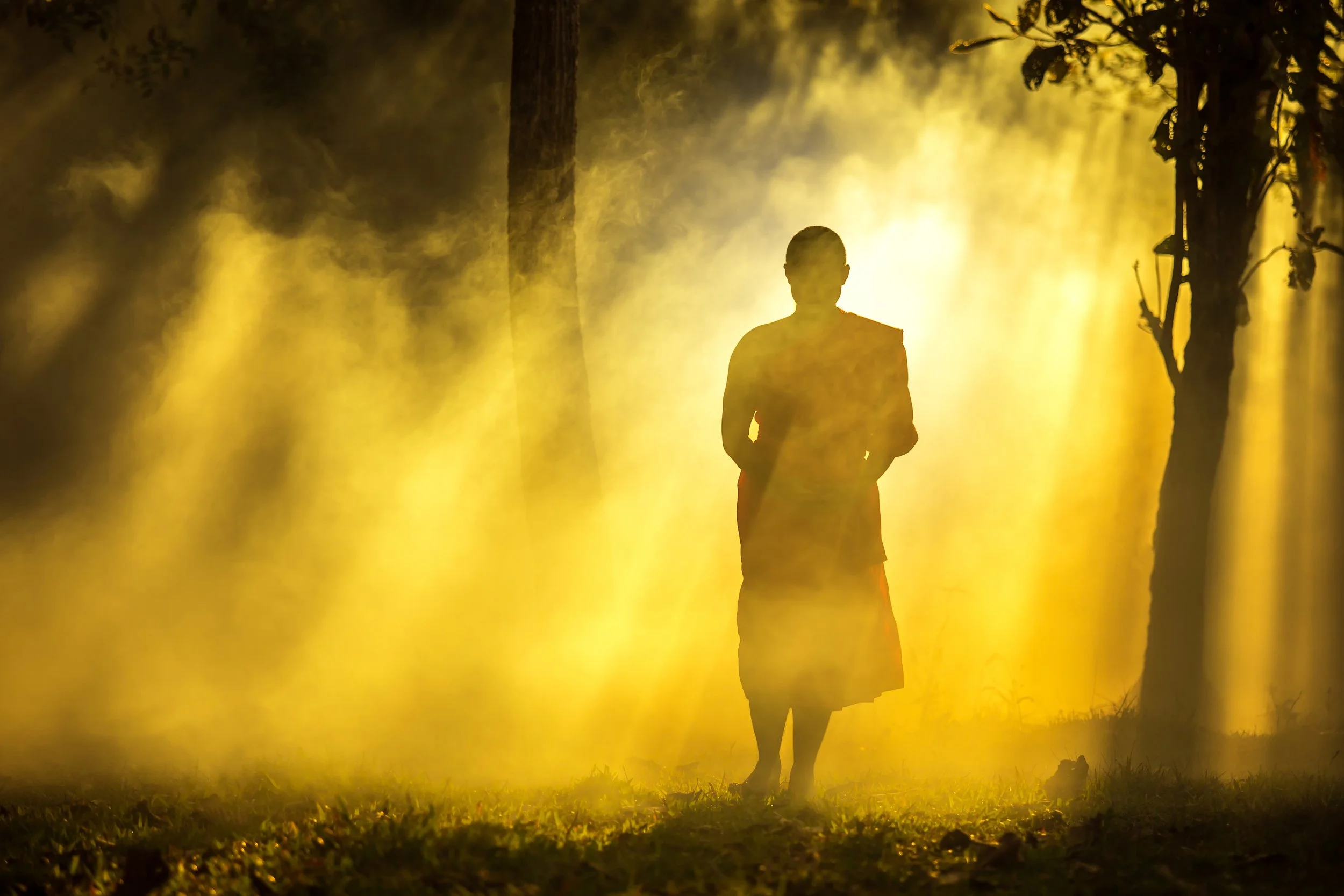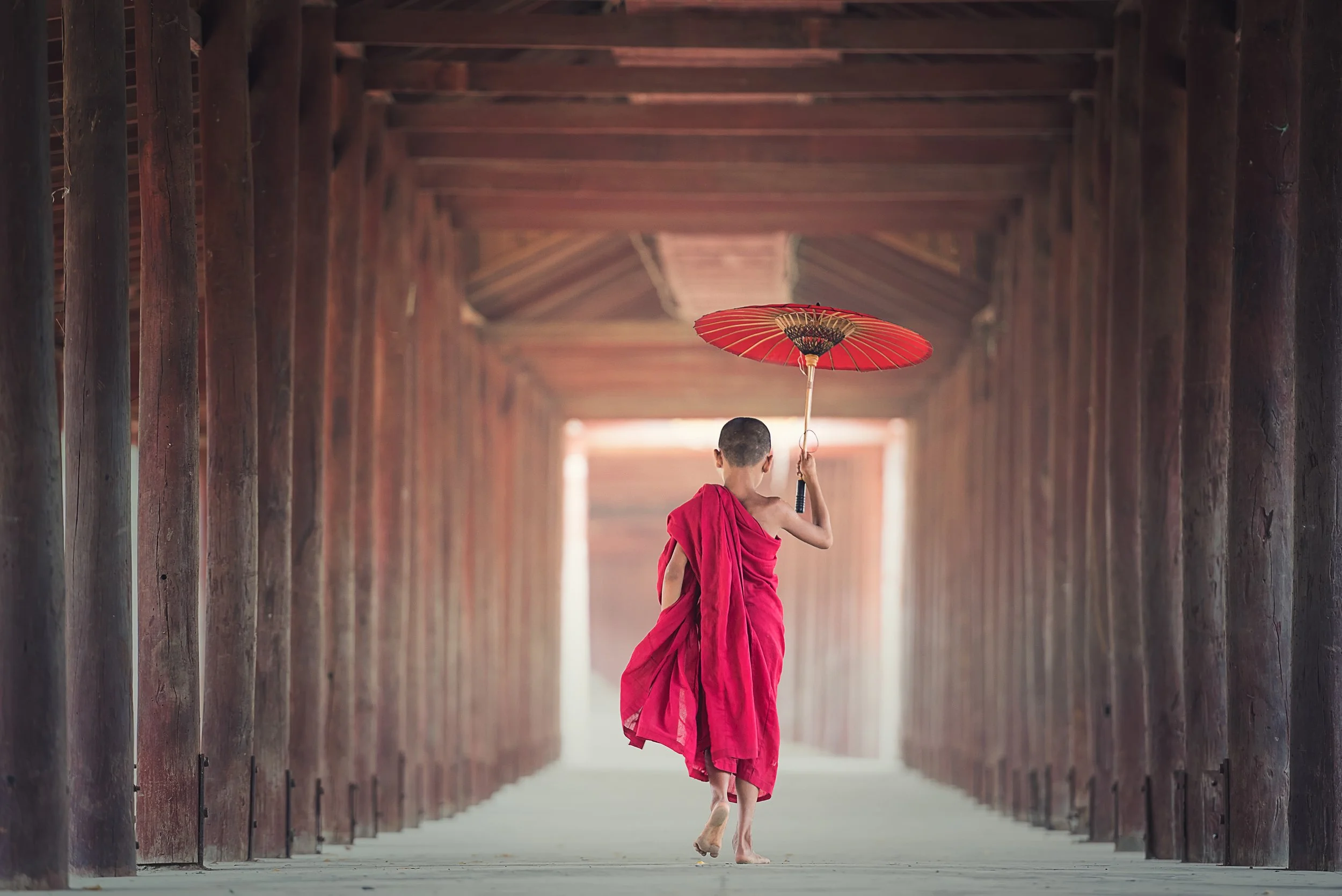TSL was created by Zayin Cabot, Ph.D.
Zayin Cabot is a scholar-practitioner whose work bridges philosophy, comparative religion, and lived spiritual practice.
He holds a B.A. in Comparative Philosophy from the University of Hawaiʻi, with a focus on Sanskrit, Buddhism, and Indian philosophy, and both an M.A. and Ph.D. in East–West Psychology with a focus on comparative philosophy of religion.
As a former professor of history of religion and comparative philosophy, he brings decades of scholarly expertise to questions of how ancient wisdom traditions inform contemporary spiritual life. His academic background provides the foundation for serious engagement with primary texts, historical development, and cross-cultural analysis of religious and philosophical systems. His first book, Ecologies of Participation, lays the groundwork for this current project.
Alongside his scholarly work, he maintains an active practice in multiple spiritual traditions. Initiated by Malidoma Somé as both a diviner and elder with the West African Dagara tradition, Zayin facilitates ritual participation within his local community. He is also deeply engaged in Buddhist and nondual Trika Shaivism communities, using this engagement as a living laboratory for exploring and recovering nondual Neoplatonic traditions in the West. This dual approach—academic rigor paired with direct experience—shapes both my research and my teaching.
A slightly longer story…
South America sounds like salvation if you say it enough times. In his mid-twenties, outside of any formal lineage, he experienced a radical awakening: a direct encounter with the Light, a profound recognition of śūnyatā (emptiness), and a sudden flooding of spirits, ancestors, and other subtle bodies. Rather than reduce these diverse revelations to a single framework, he has devoted his life’s work to cultivating what he calls participatory pluralism — a way of honoring distinctions between traditions while seeking meaningful dialogue and common ground.
This pluralism has been shaped by decades of study and practice across traditions:
Being, Light, and Attention: Noetic Presence. Zayin woke up to the reality of the Light in his twenties outside of any specific tradition. Some twenty years later he finds himself drawn into the participatory nondual lineages of Neoplatonism and Trika Shaivism, luminous traditions that carry a golden thread through the Western and Indic worlds. As beautiful as these Light-oriented traditions are, their exaltation of Being as primary can eclipse the vitality of Life and the intimacy of Love, casting them as lesser or derivative. His task has been to receive their brilliance without allowing hierarchy to silence the other dimensions of reality.
Becoming, Life, and Action: Embodied Vitality. At the very moment Zayin awoke to the Light, he was also inundated by a flood of other-than-human beings — spirits, ancestors, animals, and trees, a cacophony of other-bodies that dissolved the boundaries of his person. Guided by Michael Harner (The Way of the Shaman) and other mentors, he learned not to drown but to swim in these deep waters, discovering a spirituality grounded in shared bodies, embodiment, and vitality. The best nondual traditions nod to this vibrational field of life, but too often deny Life its own autonomy. Luckily Life resists our abstractions, insisting that rhythms, hungers, and spanda-like vitality are not illusions to be transcended but sacred realities in their own right. And yet, taken alone, Life’s current can slide into a vitalist fundamentalism — reducing everything to flux, appetite, or the intimacy of shared bodies. Life, like Light, must be brought into dialogue with the communion of Belonging.
Modernity. Lonely & Lost… The Myth of Enlightenment. Modernity is the uneasy child of Being and Becoming — or rather of the dualisms and nondualisms the Myth of Enlightenment can never quite resolve. Here the ego is both enthroned and shattered: hyper-individuality breeds abstraction and alienation, while an obsession with the mechanisms of matter drains Life of its vitality, leaving the world flat and lifeless. And yet, modernity also cracks the shell of old certainties, gesturing toward the possibility of agency, of time-freedom, and embodied liberation. In contrast to reductionist materialism, which insists that Becoming is the only “real real,” Zayin defends Life, Love, and Light as indispensable but not ultimate. Each one is a voice in a wider chorus; distinct and overlapping ways of world making. Modernity is not just a dead end; it is a beginning. It has broken the Reality open, and through the cracks something novel presses in from Beyond.
The world needs new stories, and you have a story to tell.
As host of This Spiritual Life, Zayin explores how the spiritual is lived through his original 3 + 1 model of Attention (Light, Being), Agency (Love, Belonging), Action (Life, Becoming), and the mysterious fourth of Apophasis (Liberation, Beyond). Here is a short story about where this participatory pluralism comes from…
Emptiness complicates the Light of nonduality. While Zayin was waking up to the reality of the Light, he was also dancing with the transparent void in which Being and Light have no meaning. He found the spaciousness to be with this paradox while sitting zazen. In the East Asian traditions of Chan and Zen, awakening is not to an emanationist Light like the Neoplatonist or nondual Shaivite. It is to śūnyatā — emptiness as a field of ever-present events empty of own being. Śūnyatā calls into question the primacy of Being by emphasizing something closer to a nondual Belonging: a communal, relational awakening that unsettles the Indo-European tendency to ground reality in an ultimate substance or essence. Much ink has been spilled trying to determine which nondual tradition has “figured it out,” which one holds the ultimate answer or the singular ontology. The participatory pluralism defended by Zayin shows otherwise: there is no one “nonduality,” no ultimate and autonomous one thing, but a diversity of truths vying for our attention. This is precisely what the Myth of Enlightenment gets wrong — its obsession with a single, final truth blinds us to the many ways reality reveals itself through different paths, i.e., the Light of Being, the Life of Becoming, the Love of Belonging, and the Beyond that opens into agency and freedom.
Belonging, Love, and Agency: Mythic Participation. Twice in his life Zayin was shocked into realizing he didn’t have it all figured out. The first came in a community devoted to holistic transformation, when a teacher told him bluntly: you don’t have a heart. He had been absorbed in the Light of Being, channeling Life’s vitality toward awakening, while neglecting the call of relationship. The remedy was deceptively simple: to commit himself to love as husband, father, and friend. The second shock came when he met the Earth through apprenticeship with Malidoma Somé and the Dagara people. Here, any presumption of Being’s primacy fell away as he came to feel the depth of the Dagara relationships with not only Earth, but Fire, Water, Nature, and Mineral, the key aspects of their cosmology. Through this work, Zayin was introduced what the Dagara call “technologies of relationship.” Through ritual, myth, and kinship he discovered a world where communion is the ground of truth — all our relations, bound together in shared stories. Yet he also saw how Belonging, too, can harden into mythic fundamentalism, flattening Being and Becoming into its narratives. His work is to honor Belonging as one essential voice in a plural chorus.
Beyond, Liberation, and the Freedom of Apophasis. Zayin’s path has never fit neatly into ready-made containers. How simple it would have been to become a monk, join an academic department, or work to remember and live indigenous and mythic traditions. But none of these paths could hold the full complexity of Reality pressing in upon him. His work, instead, is committed to something other — to something just Beyond — the freedom to inhabit right where you are. A kind of plus one that ultimately feels like transparency.
Drawing on a wide variety of sources, Zayin has learned to lean into this “+1” that unsettles every triad: the apophatic fourth, the irruption of novelty and agency from Beyond. Reality is not simply the Light of Being, nor only the Becoming of Life, nor only the Belonging of Love. It is always triadic — never strictly dual or neatly nondual — rather, Reality is more like a play made possible by the third thing, the messy middle of relational participation.
And yet every triad is porous, always interrupted by a fourth: the freedom of agency, the apophatic Beyond.
This is why no single tradition can claim the final word. Zen’s awakening to śūnyatā does not collapse into the Light of Being; the Dagara’s relationship to Earth cannot be absorbed into nondual frameworks; the modern search for freedom opens possibilities that tradition alone cannot answer. Committing to a participatory pluralism means holding these differences open — not into hierarchy, not into reduction, but into an embodied freedom where each way of world-making can play on a shared field without being subsumed.






